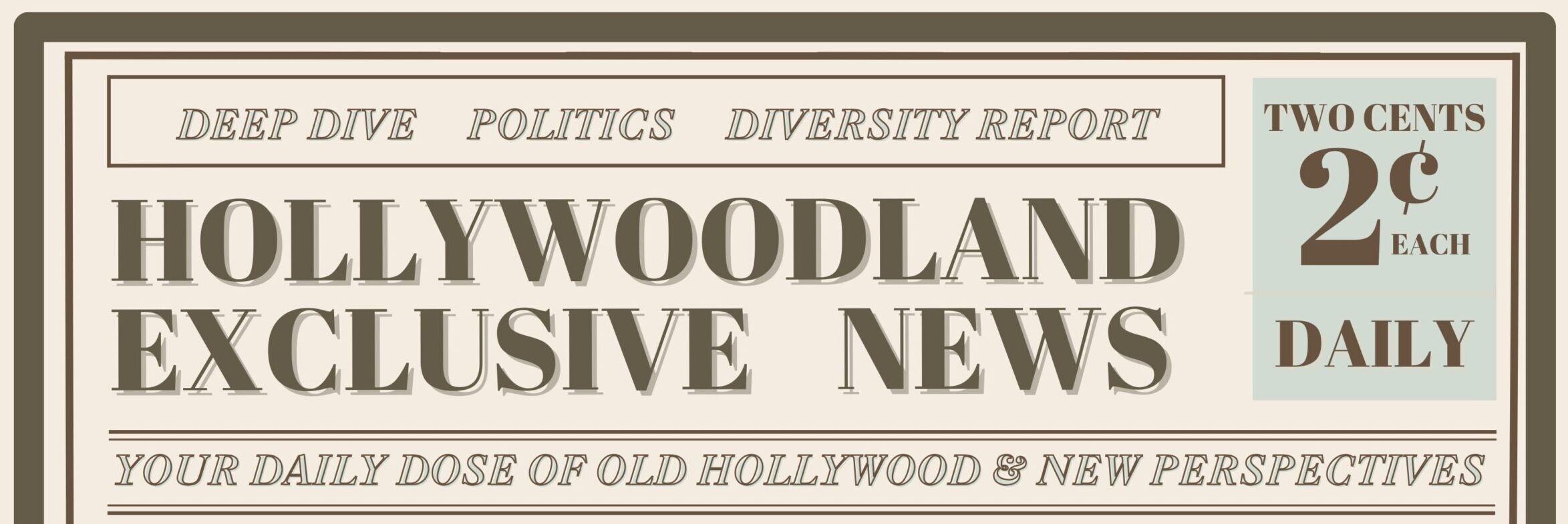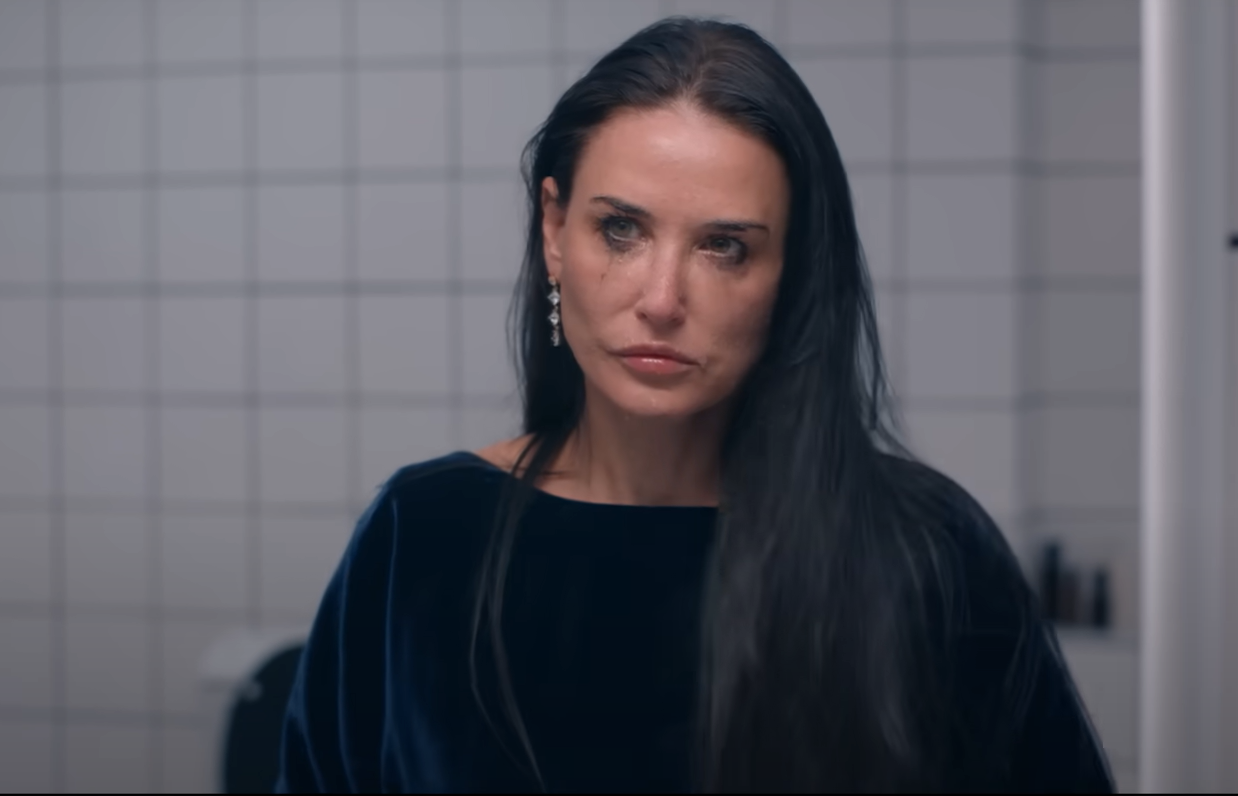
Written By
Regina Luz Jordan
Founder & Editor In Chief
Hollywood ageism isn’t subtle. It’s baked into casting calls, red carpets and the so-called “comeback” stories that should never have been needed in the first place. For men, aging means gravitas and franchise deals, aging gracefully and becoming a silver fox.
For women, age a slow slide down the casting conveyor belt: it girl, love interest, mom, grandma, gone. The machine keeps running and women are expected to smile while being reassigned into smaller and smaller boxes. Hollywood ageism is thriving and the roles women are offered prove it.
Hollywood Ageism &
the Casting Conveyor Belt
I’m gonna give it to you straight as an aging woman living in the center of Los Angeles’ movie metropolis. Here’s how Hollywood ageism works: women don’t get careers. Women are on a conveyor belt. First stop, It Girl. You’re young, beautiful and bankable.

Your only job is to look desirable enough to make audiences (and executives) lean in. Then comes the love interest phase, where your entire purpose is orbiting a man’s storyline. After 35, the machine decides you’ve “aged out,” and you’re shoved onto the mom track. By 50, you’re the Grandma and after that? Well, congratulations, you’re invisible. Let’s all check out where Sydney Sweeney is in 15 years.

Meanwhile, men get to keep their hero arcs well into Medicare. Harrison Ford is still cracking the whip as Indiana Jones at 80. Tom Cruise is leaping off cliffs at 62. Liam Neeson has built an entire brand as the “aging action dad who still kills people.”
Women of the same age are lucky, they’re cast as someone’s quirky aunt or the mother who dies in the first act to fuel a man’s pain.
I want to be clear that this is about calling out a system that only knows how to write women in relation to youth, fertility and someone else’s story because this is what women have been about since the beginning of time. There is no evolution, only erasure and that’s why Hollywood ageism keeps women trapped in roles they never asked for but, also, working in roles they can never escape.
The Comeback is Hollywood’s Ageism Trap
The cruel joke of Hollywood ageism is how success for older women is almost always framed as a “comeback.”
Michelle Yeoh wins an Oscar at 60 and suddenly she’s “back,” as if she hadn’t been building a legendary career for decades. Jennifer Coolidge delivers powerhouse work in The White Lotus and she’s treated like a rediscovered treasure instead of an actress who was criminally underutilized. Look at women of color, Viola Davis and Angela Bassett are hailed as rare forces, when in reality they’ve carried every project they touch.

Because that is what women fucking do.
The language is insulting. A “comeback” implies you left, when the truth is Hollywood stopped calling. It shifts the blame from the industry to the actress, turning systemic erasure into a personal narrative of absence.
Yeoh didn’t come back.
Coolidge didn’t come back.
They were always here.
What came back was the industry’s willingness to notice.
Botox, Beauty and the Surgery Beast
Hollywood ageism show ups in casting but the media and paarazzi live for this shit. They are critical of women’s faces, bodies and every inch of their appearance.
The industry makes it clear: if you let yourself age naturally, you’ll be called “brave” while quietly being pushed out of roles. If you choose surgery or fillers, you’ll be mocked for “trying too hard.”
This double bind is vicious. Men are allowed to gray, wrinkle and bulk up into “distinguished” roles. Women are forced into an impossible tightrope walk where aging is seen as both a personal failure and a professional liability.

You’re too old if you don’t fight it. You’re too fake if you do. The beauty standard is about control and I’ll take it one step further. The white American beauty standard, grounded in Eurocentric colonialism, makes it nearly impossible to be a beautiful woman.
It’s no coincidence that stories about women “looking good for their age” trend more than their actual work.
The camera lingers on their faces in ways it never does for men. Hollywood ageism erases women but also, the right to age without scrutiny.
Fighting the Expiration Date
The good news is women aren’t waiting around for permission anymore. Hollywood ageism might keep pushing them toward invisibility, but more and more are refusing to fade.

Reese Witherspoon built her own production company so she could greenlight stories for women of every age. Issa Rae is creating worlds where Black women live full, complicated lives without expiration dates. Viola Davis has been crystal clear that she’s not interested in being a “comeback” story because she’s a constant.
The rebellion is happening off-screen, too. Pamela Anderson walked red carpets makeup free, daring the industry to adjust to her on her terms.
Jamie Lee Curtis told reporters to stop asking about plastic surgery and start asking about the work. These aren’t small choices. These are survival strategies in an industry that still thinks aging women should shrink themselves down to make room for the younger, prettier women.

Every time a woman claims her space, builds her own platform, or refuses to be boxed in as somebody’s mom or grandma, it chips away at the machinery of Hollywood ageism. The system hasn’t collapsed yet, but women are out here rewriting the rules, one role, one story, one fight at a time.
Rewriting the Hollywood Ageism Script
So I’m gonna get real with everyone for a second. Hollywood ageism isn’t just Hollywood. It’s life.
It’s what it feels like to be a woman over 40 in a world that treats you like your expiration date just got stamped.
We’re stumbling through perimenopause, something barely talked about but maybe the scariest thing in the world. We’re navigating empty nests (I ask my son to move back in with me at least once a month) because the shift from caretaker to “what now?” is brutal. We’re job-hunting in an economy where we’re more qualified than ever but told we don’t look the (younger) part.

Why in the world should we have to suddenly get highlights, tan ourselves or wear “flattering” colors and patterns just to look hireable? Why should we be required to perform youth in order to be taken seriously? I mean, I’m forever gonna color my grays because they make me want to cry but that’s not empowerment. This is erasure with better lighting.

So yes, seeing America Ferrera play the mom of a teenager in Barbie hit hard. It reminded me how quickly the culture shoves women into smaller boxes. But as a woman, I want to say that I know for a fact that women aren’t done. We’re not done in Hollywood, not in the workplace and definitely not in life. We’re rewriting the script: one role, one job interview, one messy, beautiful, terrifying stage of life at a time because since the beginning of time, that’s what women have done.
Women have been the ones in control the entire time, behind the scenes and making things beautiful for those who come next.




Leave a Reply